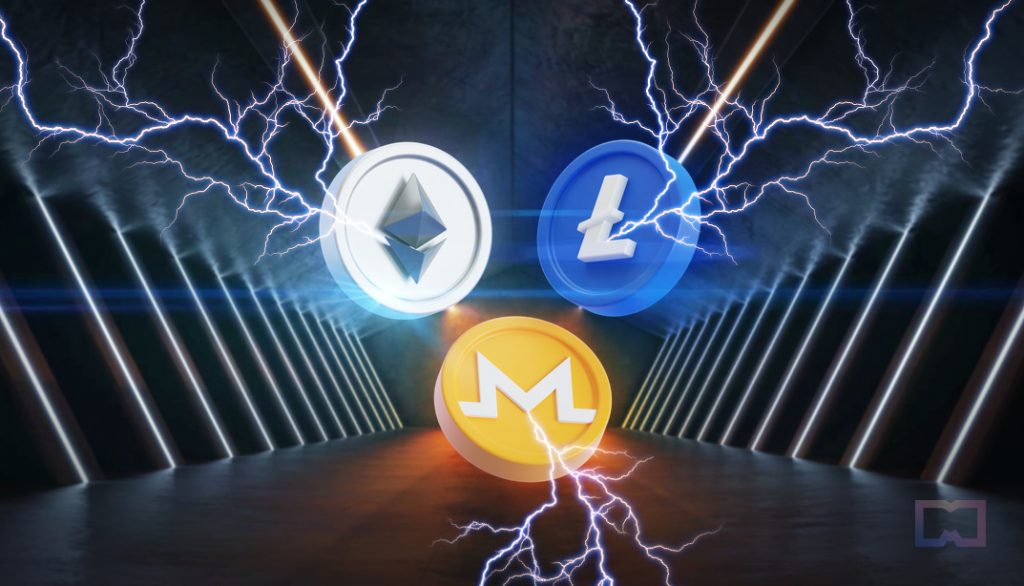What is an altcoin? A beginner’s guide to cryptocurrencies beyond Bitcoin (2023)

In Brief
These modifications can be in the form of different hashing algorithms.
It is important to research a project carefully before investing and to only invest in projects that have a strong team and roadmap.
On blockchain platforms, an altcoin is any cryptocurrency other than Bitcoin. The term “altcoin” is short for “alternative coin” and generally refers to all cryptocurrencies created after Bitcoin.

Most altcoins are forks of Bitcoin, built using its open-source code as a starting point but with slight modifications to the underlying blockchain technology. These modifications can be in the form of different hashing algorithms, faster transaction speeds, or various economic incentives for miners and stakers. Some popular altcoins include Ethereum, Litecoin, and Bitcoin Cash.
While there are over 5,000 altcoins currently traded on digital asset exchanges. Only a handful have established themselves as viable long-term investments. When choosing an altcoin to invest in, it is important to research the project team and roadmap carefully and use the case to ensure that it is a legitimate project with a bright future ahead.
What is an altcoin?
The term “altcoin” refers to all coins that are not Bitcoin (BTC), with “alt” standing for “alternative.” Litecoin (LTC) and Ether are two second- and third-generation blockchain-based cryptocurrencies that emerged. Altcoins (alternative cryptocurrencies) are often valued in BTC, unlike Bitcoin, which is frequently quoted in dollars, yuan, euros, and other fiat currencies.
Types of altcoins
The many types of altcoins include stablecoins, decentralized finance (DeFi) altcoins, proof-of-work (PoW), and proof-of-stake (PoS) altcoins (based on consensus processes).
Stablecoins
Stablecoins are coins whose value is tied to a fiat currency, such as the USD. The most popular stablecoin is Tether (USDT), which is pegged to the USD. Other examples of stablecoins include USD Coin (USDC), Paxos Standard (PAX), and TrueUSD (TUSD). Most stablecoins are backed by reserves of fiat currency or other assets, such as gold. The team behind a stablecoin project will typically hold the reserves in a transparent and auditable manner.
DeFi altcoins
DeFi altcoins are cryptocurrencies that are used in decentralized finance protocols and platforms. The most popular DeFi altcoin is Maker (MKR), which is used to collateralize loans on the Maker Protocol. Other examples of DeFi altcoins include Basic Attention Token (BAT), 0x (ZRX), and Augur (REP).
Proof-of-Work (PoW) altcoins
PoW altcoins are cryptocurrencies that use a PoW consensus mechanism. The most popular PoW altcoin is Bitcoin (BTC), which uses the SHA-256 hashing algorithm. Other examples of PoW altcoins include Ethereum (ETH), Litecoin (LTC), and Monero (XMR).
Proof-of-Stake (PoS) altcoins
PoS altcoins are cryptocurrencies that use a PoS consensus mechanism. The most popular PoS altcoin is Cosmos (ATOM), which uses the Tendermint consensus algorithm. Other examples of PoS altcoins include Cardano (ADA), EOS (EOS), and Tezos (XTZ).
What are the benefits of altcoins?
The main benefit of investing in altcoins is that they have the potential to generate returns that exceed those of Bitcoin. This is because altcoins tend to be more volatile than Bitcoin and are often traded at lower prices, making them more attractive to risk-tolerant investors.
Another benefit of altcoins is that they offer a greater degree of anonymity than Bitcoin. This is because most altcoins are not subject to the same strict KYC and AML regulations as Bitcoin and other fiat currencies.
Which Altcoins are tied to Bitcoin?
Some of the most famous Altcoins, as ranked by market capitalization, are Ethereum, Ripple, Tether Bitcoin Cash, Bitcoin SV, and Litecoin. Each of these coins works in various ways with the Bitcoin blockchain, from being designed as a direct competitor to Bitcoin (e.g. Ethereum and Ripple) to serving as additional nodes for transactions that use Bitcoin to move between wallets (Bitcoin Cash, Litecoin).
What are the risks of investing in altcoins?
As stated above, they are much more volatile than Bitcoin and thus subject to greater price swings. This means that investors could experience significant losses in a short period of time if they invest in an altcoin that subsequently declines in value.
Another risk of investing in altcoins is that many projects are scams. This is because the cryptocurrency space is largely unregulated; thus, there is no guarantee that an altcoin project is legitimate. For this reason, it is important to research a project carefully before investing and to only invest in projects that have a strong team and roadmap.
In conclusion, altcoins are a type of cryptocurrency that refers to all coins other than Bitcoin. There are many different types of altcoins, each with its own advantages and disadvantages. The main benefits of investing in altcoins include the potential for higher returns and greater anonymity. However, the risks of investing in altcoins include greater volatility and the possibility of scams.
Altcoins’ potential for growth
Despite the risks, altcoins have the potential to generate returns that exceed those of Bitcoin due to their volatility. They also offer a greater degree of anonymity than Bitcoin, which could appeal to those who value privacy. Thus, while there are risks associated with investing in altcoins, the potential rewards could make them a worthwhile investment for those who are willing to take on additional risk.
Related articles:
- ICO: A beginner’s guide to raising capital using cryptocurrencies
- Bitcoin Nodes Explained: A Beginner’s Guide
- What is the Bitcoin Taproot Upgrade?
Disclaimer
In line with the Trust Project guidelines, please note that the information provided on this page is not intended to be and should not be interpreted as legal, tax, investment, financial, or any other form of advice. It is important to only invest what you can afford to lose and to seek independent financial advice if you have any doubts. For further information, we suggest referring to the terms and conditions as well as the help and support pages provided by the issuer or advertiser. MetaversePost is committed to accurate, unbiased reporting, but market conditions are subject to change without notice.
About The Author
Ken Gitonga is passionate about writing. His work involves writing crypto articles on SEO, TAs, News writing, Web3 articles, crypto price prediction, and white paper drafting. Ken is a content writer and marketer. He has worked in the SEO and content marketing industries for over 3 years and has helped businesses grow their online presence and traffic.
More articles

Ken Gitonga is passionate about writing. His work involves writing crypto articles on SEO, TAs, News writing, Web3 articles, crypto price prediction, and white paper drafting. Ken is a content writer and marketer. He has worked in the SEO and content marketing industries for over 3 years and has helped businesses grow their online presence and traffic.


















































